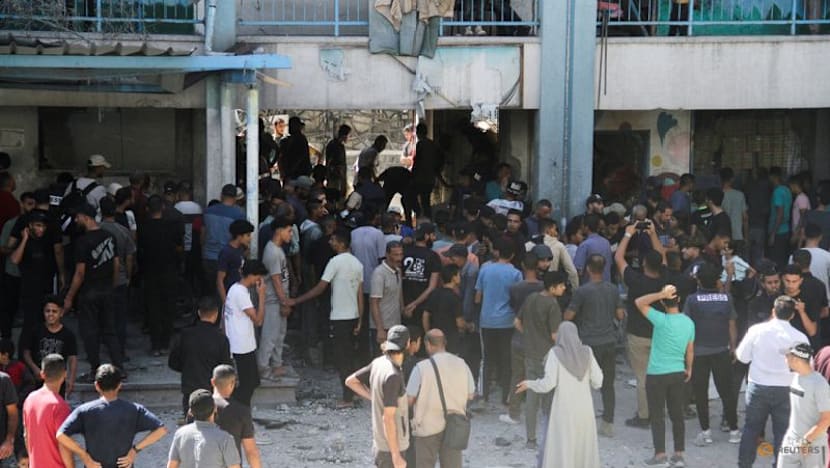UN official warns Gaza risks ‘lost generation’ as schools lie in ruins
UNICEF warned Gaza faces a “lost generation” as most schools remain destroyed after two years of war. Only a fraction of children are in makeshift classrooms, with education still largely halted.

JERUSALEM: Gaza’s devastated education system has left nearly all children without formal schooling for a third consecutive year, prompting fears of a “lost generation,” a senior UN official warned on Friday (Oct 24).
“This is the third year that there has been no school,” Edouard Beigbeder, UNICEF’s regional director for the Middle East and North Africa, told AFP after returning from the Palestinian territory. “If we don’t start a real transition for all children in February, we will enter a fourth year. And then we can talk about a lost generation.”
Beigbeder described “overwhelming destruction” across Gaza, with 85 per cent of schools destroyed or unusable after two years of war between Israel and Hamas. “It is impossible to imagine 80 per cent of a territory that is completely flattened out or destroyed,” he said.
TEMPORARY CLASSROOMS, LITTLE LEARNING
A US-brokered ceasefire earlier this month allowed UNICEF and partner groups to reach about one-sixth of Gaza’s school-aged children in makeshift “learning centres.”
“They have three days of learning in reading, mathematics and writing, but this is far from a formal education,” Beigbeder said. Many of the centres are tents or metal structures covered with plastic sheeting, with children sitting on mats and writing on salvaged boards.
He said some 142 schools have been completely destroyed, 80 others require renovation, and 38 remain “inaccessible” because they are located in areas controlled by Israeli troops under the ceasefire.
CHILDREN TRAUMATISED, SUPPLIES BLOCKED
Before the conflict, Gaza’s schools were already overcrowded, with half the population under 18. Many surviving school buildings are now shelters for displaced families.
UNICEF said border restrictions are preventing the entry of school materials such as cement, books and blackboards, which Israel deems non-essential. “How can you rehabilitate classrooms if you don’t have cement?” Beigbeder asked. “Food is survival. Education is hope.”
The UN agency for Palestinian refugees (UNRWA) launched a “new e-learning school year” on Oct 18 for about 290,000 pupils, though the reach remains limited.
AID AND POLITICS
The situation comes amid a fragile truce and deepening aid shortages. The World Health Organization said Thursday there had been “little improvement” in the flow of aid since the ceasefire began.
Meanwhile, US Secretary of State Marco Rubio accused UNRWA of being a “subsidiary of Hamas” and said it would play no role in post-war Gaza.
Beigbeder said rebuilding Gaza’s schools and restoring education must be “at the top of the agenda” to restore social cohesion and stability.
“Almost all of Gaza’s children are traumatised,” he said. “Without education, there is no future for them, and no future for Gaza.”















